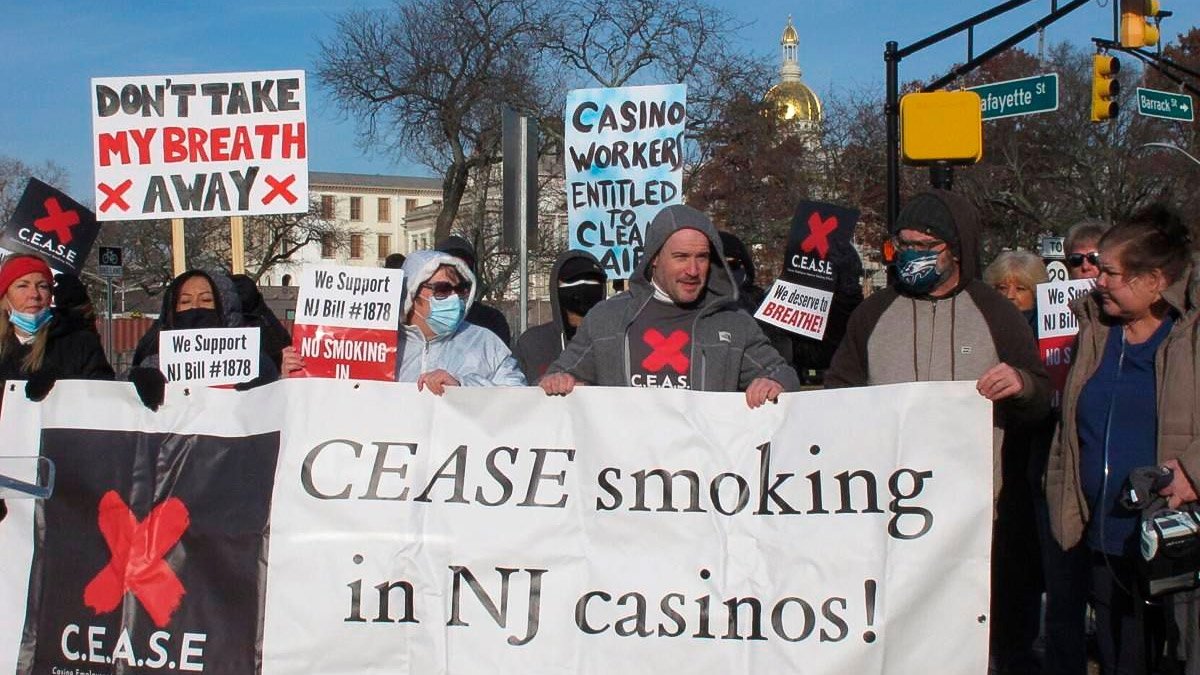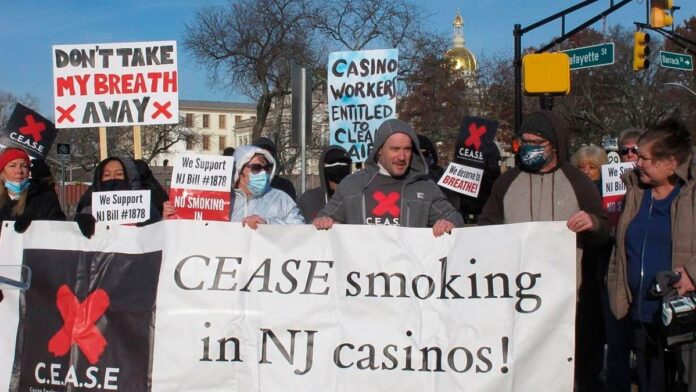Atlantic City’s main casino workers union, Local 54 of the Unite Here union, along with the New Jersey Attorney General, has filed a motion to dismiss a lawsuit brought by another union seeking to prohibit smoking in the city’s nine casinos.
The lawsuit, initiated by the United Auto Workers earlier this month, aims to overturn New Jersey’s indoor smoking law, which currently permits smoking in casinos but prohibits it in virtually all other workplaces.
In response, Local 54 argued that a smoking ban would jeopardize the livelihoods of a significant portion of its 10,000 represented workers, with approximately one-third facing potential job loss if smoking were prohibited, The Associated Press reported.

Presently, smoking is permitted on 25% of the casino floor, albeit in non-contiguous areas, leading to the presence of second-hand smoke throughout varying degrees of the gaming environment.
New Jersey Attorney General Matt Platkin has urged the state Superior Court to deny a preliminary injunction request made by the casino workers seeking to implement a smoking ban, emphasizing that such a significant change to the longstanding exemption for casinos should not be pursued through an injunction.
Platkin, representing Democratic Gov. Phil Murphy and the state health department, said the state’s indoor smoking law does not deny any group of people equal protection under the law “and does not infringe on any purported constitutional right to safety,” reports Associated Press.
Nancy Erika Smith, the attorney who filed the lawsuit, expressed surprise at Local 54’s stance. “I have never seen a union fight against the health and safety of their members, not once. Luckily, Unite’s economic arguments, while false, have absolutely no relevance to the constitutional question at hand,” Smith was quoted as saying in the AP report.
Donna DeCaprio, president of Local 54, emphasized the potentially catastrophic impact of a total smoking ban on Atlantic City, citing statistics indicating that a significant portion of gambling revenue comes from smoking sections.
“We support the health and safety of our members, and believe that improvements to the current work environment must be made. A balance needs to be reached that will both protect worker health and preserve good jobs,” DeCaprio said.
The union supports legislation introduced earlier in the year that would maintain the current 25% limit on smoking areas while allowing smoking in designated unenclosed areas of the casino floor, subject to certain conditions.
The debate over banning smoking in Atlantic City casinos reflects broader concerns among workers in various states regarding second-hand smoke exposure, with similar campaigns underway in Rhode Island, Pennsylvania, Kansas, and Virginia.
Local 54 cited historical data from 2008, when a brief total smoking ban was implemented in Atlantic City, which indicated a substantial decline in casino revenues, leading to the adoption of the current 25% smoking area policy.
Opponents of smoking argue that transitioning to a smoke-free environment could attract more customers, potentially offsetting any revenue loss from departing smokers.














